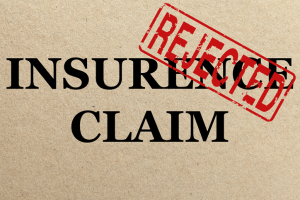Navigating the legal and commercial challenges of Artificial Intelligence
The future is now. Artificial Intelligence (AI) is changing the way we live our lives. From smart homes to self-driving vehicles, to healthcare and everything in between and beyond. These new technologies present significant commercial opportunities and huge potential to improve our future. Clients need lawyers with a clear understanding of the legal landscape, not just as it currently exists but also how it might evolve to take account of new innovations. Pioneering companies need lawyers who understand the demand for high-speed, clear thinking, and a practical approach.
Hogan Lovells' Partners Valerie Kenyon and Matthew Felwick – supported by a vast and highly experienced and innovative Global Products Law practice – are helping steer clients through the possible minefields. Here, they share some thoughts on the future of AI in the product law context.
What impact does AI have on your practice?
VK: There will be a huge impact in the consumer product space. A lot is already happening. Development of smart appliances and the growth of home digital assistants are changing the way we interact with the everyday machines in our homes.
We've still got a way to go. Full adoption of AI technology is constrained in some respects by human expectations. Smart home systems and autonomous vehicles will soon be able to act completely autonomously. Products on the market today are already capable of making good decisions: but we aren't yet ready to hand over control (and the technology is not yet ready for that, either). A key factor in getting people ready for that new technology is being able to reassure people that new products are safe – if not safer – than the way things have been done before. This is an important point for companies, too. With technological development moving so much faster than law and regulation, our clients need help to navigate through product safety and liability issues. We work with them in relation to the requirements of relevant regulatory regimes globally and help our clients to get their products ready for launch. We also help our clients to stay ahead by working with them to anticipate how future regulation is likely to develop, as well as acting as thought-leaders in this space.
MF: Technology is rapidly changing the way the health care industry works. Most people are familiar with fitness trackers but we're also seeing continued advances in AI contributing to the transformation of health care services. Companies are developing AI-enabled clinical decision support software and medical chatbots to interact with patients. For example, the NHS has partnered with babylon, a digital health provider, to deliver an app which allows patients to book a video appointment with a GP. The app uses AI to check a patient's symptoms to help determine whether they need to see a GP. The appointment is recorded and can be played back at any time for instant access to their doctor's advice. We're going to see more mainstream use of AI in relation to life sciences in the near future. Such developments bring with them new potential risks for health care companies. We're working with our clients to prepare for, and mitigate, the risks involved.
What are the key challenges?
MF: Early reports of patient engagement and satisfaction with the new technology in primary health care are evidence that certain sections of the public, such as millennials, are ready to embrace it. This will only progress if the public continue to have trust in that technology. Companies need to ensure they implement robust systems to protect personal data and stay abreast of cyber-security threats. There are real world examples of medical devices being hacked. Increasing technological advances are also likely to require updated regulatory frameworks. Companies will need to be alert to possible developments to ensure they are in step with evolving regulation.
VK: That's also a key challenge for other products companies – how to ensure your product is safe when the product is not captured by current legal regimes. Another challenge is how to be prepared for new regulation coming later down the line. Innovative products are designed ahead of law and regulation and those companies need advice on how to try to "futureproof".
When looking to launch a new AI product there are likely to be additional complicating factors compared with a traditional product launch, such as: the identification of appropriate technical standards; determining how relevant product laws apply where the laws couldn’t possibly have envisioned the technology in question (guidance and case law is likely to be thin on the ground); and the appropriate testing of the product (e.g. identifying a test house with the requisite expertise).
MF: The life sciences industries are among the most highly regulated industries already, but the pace of innovation is incredible and this can create a lot of potential issues. The reality is that innovations in medicine and health lead to legal uncertainty. Add in other issues which can affect the legal landscape, such as Brexit and the GDPR, and companies are faced with a rapidly evolving landscape. We're working with our clients to help them continue to develop new products, while seeking to minimise future litigation risk.
How do you help?
VK: We provide advice and support throughout the product lifecycle. This is especially valuable in relation to innovative products, as the right legal and commercial input at an early point can very heavily contribute to a successful product launch. Our team of products lawyers have a detailed understanding of the relevant laws and regulatory regimes and are tech-savvy and commercially focused. We are plugged in to complementary practice areas including customs, tax, corporate, data and privacy law, and all aspects of regulatory compliance and public policy. We make it a point to thoroughly understand our clients' businesses so that we can give tailored advice, in tune with the company's own culture, philosophy and objectives. Our vast global network of product law specialists is involved with, and monitors, legal developments around the world so we can help our clients stay ahead. Our team combines product regulatory and product litigation experts: this is crucial, as considering potential risk and liability, as well as product compliance aspects, is vital to help companies to manage a successful product launch. In the area of AI all of this is imperative.
MF: We've always had a very strong life sciences practice at Hogan Lovells, sitting within our wider products practice. Our teams frequently work closely with our in-house Science Unit, staffed with post-doctoral scientists, to deal with the complex medical and scientific issues our clients are facing.
VK: Our Science Unit is especially helpful in issue-spotting potential developing areas of product liability. They work with our lawyers, and incredible clients, to think to the future and help our clients to make safe products – whatever industry those products are in. We help clients deal with the uncertainties and ambiguity which cannot be addressed within the borders of traditional areas of law and local regulation.
How might AI influence the legal landscape?
VK: AI could have an enormous impact. Legislators and regulators have to grapple with how to ensure the safety and performance of AI products while not stifling innovation and market entry. A number of jurisdictions including the US and the EU have started to consider whether AI products need specific legislation, regulations, and standards. The EU is currently evaluating whether the Product Liability Directive is still fit for purpose. One of the key issues is whether it adequately covers new technological products. Use and abuse of personal data is very much in the news currently. When it comes to looking after their most sensitive personal data, users will rightly demand the highest protection and will claim compensation if the standards are not met. This is a growing threat for companies.
MF: Similarly, in the life sciences field, legislators and regulators will have to wrestle with how to encourage innovation, while simultaneously protecting the safety of patients and their data. Risks relating to connected medical devices and software hacking are also likely to increase as the technology becomes increasingly mainstream.
What next?
VK: Particularly challenging legal issues arise when AI begins to make its own independent decisions. What happens if an AI product learns to become unsafe in response to its external environment? Would the capacity to learn to become unsafe make it a defective product, bringing it within the scope of product liability regimes? Who would be liable - the programmer/designer, the manufacturer who puts the “nuts and bolts” of the product together, or the owner of the AI’s algorithm? What about the consumer who home-programmed the product? These are the type of issues to be grappled with when assessing risks associated with marketing new AI products.
MF: Some people argue that sophisticated AI products should be assigned legal personhood (although this doesn't equate to giving machines legal rights). Meaning that a product/robot could be held liable for any damage it causes. This approach is not without its own challenges. It would likely require that the product be covered by insurance. It remains to be seen whether the insurance market would offer affordable policies covering new AI products.
VK: We shouldn't be ruling out human involvement just yet. One of the most difficult issues – particularly as AI technology increases in complexity - is ensuring that the algorithms (and their self-evolutions) do not include biases. Perhaps some human intervention will remain important to ensure transparency and lack of bias.
www.hoganlovells.com
Valerie Kenyon, Partner
Valerie helps companies to manage their risks. She is a Global Products Law Partner focusing on both disputes and regulatory work in the product world, and contributes to global thought-leadership around the future of products law and innovative technology. She co-authors International Product Liability Review, the only quarterly publication covering global product regulatory and liability news and analysis.
Matthew Felwick, Partner
Matthew is a disputes Partner in the Global Product Law practice at Hogan Lovells and is co-chair of our London life sciences team. Whether advising a life science company facing a group action in England, or helping a global product manufacturer work through claims across Europe, Matthew's extensive experience of complex, cross-border litigation means he gets the commercial context and quickly finds the best solution.
About Hogan Lovells
Whether you’re expanding into new markets, considering capital from new sources, or dealing with increasingly complex regulation or disputes, we can help. Whether change brings opportunity, risk, or disruption, be ready by working with Hogan Lovells.




















